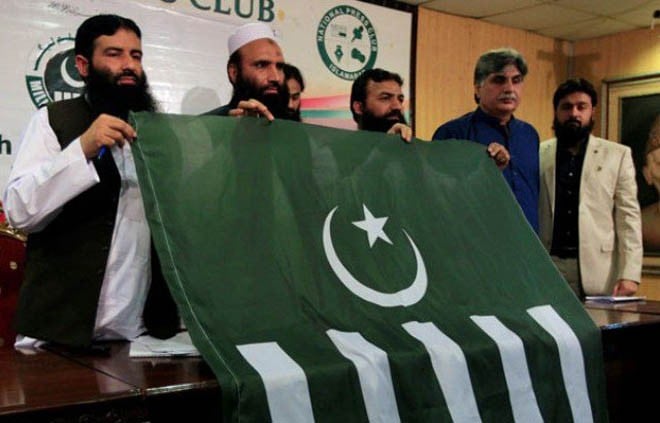
The transition from welfare to politics or vice versa by proscribed outfits is not new in Pakistan

Two recent developments - launching of ASWJ’s charity wing and JuD’s political party - are reflective of influence the proscribed outfits exercise in electoral politics in Pakistan.
In Ramzan, Alhe Sunnat Wal Jamaat (ASWJ), which takes part in electoral politics, launched its charity wing, Al-Nujoom Welfare Foundation (AWF) in Karachi. Though the charity denies links with ASWJ, its central central chief Maulana Aurangzeb Farooqi has attended its charity functions and Karachi secretary general Taj Muhammad Hanafi is in-charge of the Foundation.
Last week, Jamaat-ud-Dawa (JuD), after successfully running a charity, Falah-e-Insaniyat Foundation (FIF), launched a political party, Milli Muslim League and is about to register it with the Election Commission of Pakistan (ECP).
"Because of the people’s trust in us, we have now decided to take part in electoral politics," says Saifullah Khalid, head of the newly formed MML.
The AWF has been using social media and local mosques to promote its cause. The Foundation has launched a free ambulance service in Karachi, and is planning to purchase more in the coming months. Also, it plans to build a morgue and a funeral support service centre at its Korangi Road office.
Analyst Ayesha Siddiqa says the proscribed outfits, such as ASWJ, set up charity wings because, "Charity wings strengthen their base socially as well as politically".
She adds ASWJ already operates a labour union, "so a welfare wing will further broaden its social base".
Also, she says, "Charity work always justifies their existence. Like in the case of JuD and its charity arm FIF".
Besides the ambulance service, free medical centres, schools and dozens of other projects, FIF also runs two private fire tenders in Karachi. The AWF officials say FIF, which has emerged as the fastest growing charity organisation across Pakistan, has inspired them.
Gulmina Bilal Ahmed, director of the Individualland, an Islamabad-based advocacy group, says the major reason why militant organisations form their charity wings is to create space in the society for carrying out their activities legitimately. "By helping the poor and downtrodden segments of the society, these charities help militant organisations to create a dedicated following. This is part of their image building, which helps them expand their following in other more affluent segments of the society".
Individualland also manages Database of People with Extremist Linkages (DOPEL), helping the people to identify proscribed outfits before giving donations. "Poor governance and service delivery mechanisms in Pakistan play the role of aiding and abetting these charity wings. If you help me when my house is flooded and my family is out on the street, I will be indebted to you and not to the non-existent government. This victim-survivor psychology is understood and used well by the militant organisations," says Gulmina Bilal Ahmed.
Munir Ahmed Shah, a Karachi-based journalist covering religious parties, believes that after the Jamaat-e-Islami’s Al Khidmat Welfare Society, Deobandi charities have remained active, and most of them have been affiliated with seminaries. "Besides them, individuals, groups and seminaries belonging to Barelvi, Shia and Ahle Hadith sects also run charity organisations".
In the past, the Sipah-e-Sahaba Pakistan (SSP) formed a charity outfit, Al-Isar Welfare Trust, named after its slain chief Isar-ul-Qasmi, for collecting donations and animal hides to provide financial support to their workers, either killed or arrested.
Most prominent among Deobandi seminaries were Al-Akhtar Trust and Al-Rasheed Trust, both named after prominent principals of Karachi’s two seminaries, Hakeem Muhammad Akhtar of Ashraf Darul Madaris and Mufti Muhammad Abdul Rasheed of the Darul Ifta-e-Wal Irshad respectively. Both charities were banned under the UN Security Council Resolution No.1267 in December 2015 for their alleged involvement in subversive activities, forcing them to operate under new aliases of Azmat-e-Pakistan Foundation and the Al-Amin Trust respectively.
Even proscribed jihadi organisations, such as Harkatul Mujahideen and Jaish-e-Muhammad, had their own charity arms, which are still operating with new aliases after being banned by the state.
The Jamiat-e-Ulema Islam-Fazl, the largest religio-political party, has also founded its charity arm, Al-Khair Trust.